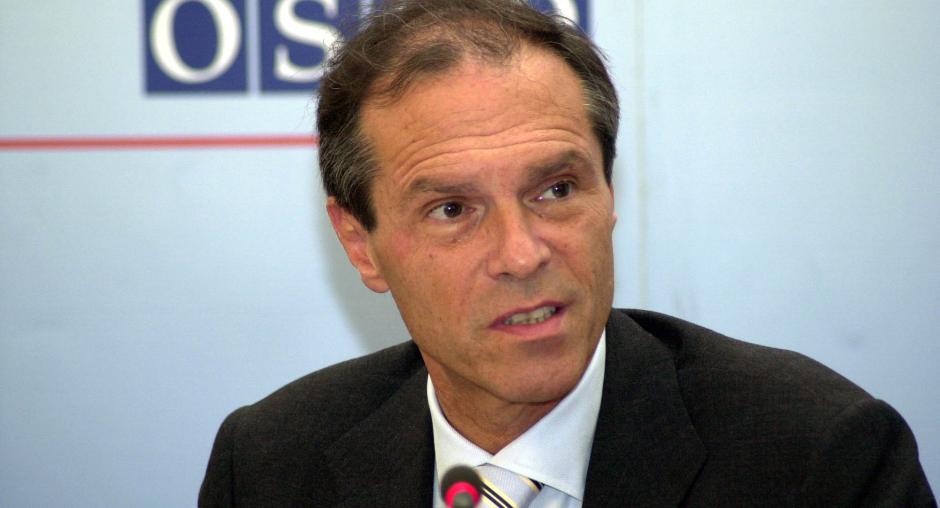Newsroom
UN Special Representative sees progress in Kosovo
VIENNA 11 July 2002

Progress is needed in three key areas, Mr. Steiner said: refugee returns, economic development and the rule of law. (Ayhan Evrensel/OSCE) Photo details
VIENNA, 11 July 2002 - Michael Steiner, Special Representative of the United Nations Secretary-General and Head of the United Nations Interim Administration for Kosovo (UNMIK), said on Thursday that things were improving in Kosovo, with the OSCE playing a key role in helping its people to live in security and dignity.
"But the ice is still thin," he said in his first address to the Permanent Council of the 55-nation OSCE in Vienna. "Kosovo is not yet self-sustainable. We confront new problems every day. To make continued progress, we all need to remain closely engaged."
Positive developments included the fact that 420,000 children were now at school and 15,000 students were attending university. The institutions of provisional government were working.
But progress was needed in three key areas, the Special Representative said: refugee returns, economic development and the rule of law. "If I had to pick one priority, it would be the rule of law - everything else depends on this," he said.
The policy of zero tolerance for crime and corruption was working, as reflected in a sharp decline in the number of murders since 2000. Fighting human trafficking was a top priority but this was a regional problem which required a co-ordinated regional response.
Mr Steiner described the OSCE police training school as a success story. He asked for support in convincing Kosovo Albanians that it was essential to make the judiciary multi-ethnic by appointing more Kosovo Serbs as judges. "It doesn't mean Milosevic's old judges coming back," he said.
The Special Representative said UNMIK was a transition administration which was working to transfer power to local people. "UNMIK is not a surrogate state," he said. "It has been clear to all of us from the beginning that we will not stay in Kosovo permanently. Success is when we're gone."
"But the ice is still thin," he said in his first address to the Permanent Council of the 55-nation OSCE in Vienna. "Kosovo is not yet self-sustainable. We confront new problems every day. To make continued progress, we all need to remain closely engaged."
Positive developments included the fact that 420,000 children were now at school and 15,000 students were attending university. The institutions of provisional government were working.
But progress was needed in three key areas, the Special Representative said: refugee returns, economic development and the rule of law. "If I had to pick one priority, it would be the rule of law - everything else depends on this," he said.
The policy of zero tolerance for crime and corruption was working, as reflected in a sharp decline in the number of murders since 2000. Fighting human trafficking was a top priority but this was a regional problem which required a co-ordinated regional response.
Mr Steiner described the OSCE police training school as a success story. He asked for support in convincing Kosovo Albanians that it was essential to make the judiciary multi-ethnic by appointing more Kosovo Serbs as judges. "It doesn't mean Milosevic's old judges coming back," he said.
The Special Representative said UNMIK was a transition administration which was working to transfer power to local people. "UNMIK is not a surrogate state," he said. "It has been clear to all of us from the beginning that we will not stay in Kosovo permanently. Success is when we're gone."
